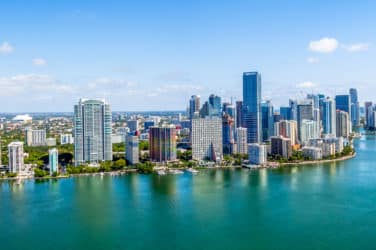- Focus on organic growth, targeted acquisitions, and investments in new technologies
- Structural net revenue targeted to grow by more than 5 per cent p.a. – annual net profit to increase by between 10 and 15 per cent on average
- Structural costs to be reduced by around €100 million until 2020
- Technology investments of €270 million with several hundred new jobs in areas holding potential for the future
Deutsche Börse AG presented the details of its “Roadmap 2020” strategy at its annual Investor Day in London on 30 May 2018. The “Roadmap 2020” will focus on three strategic areas: organic growth, targeted acquisitions, and investments in new technologies. The goal is to strengthen – and further expand – Deutsche Börse’s position as a leading European financial markets infrastructure provider with global growth ambitions.
Theodor Weimer, CEO of Deutsche Börse AG, said: “With the ‘Roadmap 2020′, Deutsche Börse is preparing itself for the future and for further growth in the best manner possible. We will be focusing even more consistently on the scalability of our business model and on enhancing our operational processes. Overall, this will make us faster and more efficient. The new Executive Board team is determined to reignite Deutsche Börse’s strengths as a leading financial markets infrastructure provider with global ambitions. By the end of 2020, we want Deutsche Börse to be a more efficient company – and a bigger one, with more employees than today.”
To enhance its operational structure, Deutsche Börse has split its business into nine segments, covering the company’s entire value creation chain. Moreover, Deutsche Börse will enhance its operational efficiency whilst reducing structural costs: this will involve improved decision-making processes as well as streamlining the organisation. 350 jobs will be cut, thereof 50 managers.
The target is to reduce structural costs by around €100 million by the end of 2020. One-off costs for the strategic programme will amount to approximately €200 million, most of which will be incurred in 2018. Cost savings will create scope for investments in growth and technologies: over the next years, Deutsche Börse plans to create several hundred new jobs in areas holding potential for the future, alongside close to €300 million in technology investment. Deutsche Börse intends to preserve shareholders’ participation in the company’s performance through regular dividends amounting to between 40 and 60 per cent of consolidated net profit for the period.
The entire Executive Board will be responsible for implementing the strategy. Deutsche Börse’s Executive Board will be revamped, with Thomas Book (responsible for the Trading business) and Stephan Leithner (Post-trading as well as Data and Index businesses) set to join on 1 July 2018, and Christoph Böhm (Chief Information Officer and Chief Operating Officer), who will join on 1 November 2018. The Board will then comprise six members.
Strong organic portfolio growth in all businesses providing the baseline
The first of three strategic areas of the “Roadmap 2020” provides for stronger and faster exploitation of existing structural as well as cyclical growth opportunities. In Deutsche Börse’s view, a higher level of market volatility – sustained over a longer-term horizon – will offer particular scope for cyclical growth, while the trend towards exchange-based trading and clearing holds potential for structural growth. Growth opportunities exist across all nine segments.
Within the scope of its strategy, Deutsche Börse projects net revenue growth from structural opportunities to exceed 5 per cent p.a. between now and the end of 2020. In addition, expected positive cyclical effects on net revenue are to be expected. On this basis, the company anticipates an average annual growth rate for adjusted net profit between 10 and 15 per cent for the period between now and 2020.
Programme of targeted acquisitions in growth areas
Second, Deutsche Börse’s strategy aims to strengthen the business through targeted acquisitions in five growth areas, comprising fixed-income securities, energy products, currencies, investment fund services, as well as data and indices. As a prerequisite, any transaction must generate noticeable added value for Deutsche Börse and its shareholders. A return on invested capital (ROIC) in excess of 10 per cent after three to five years will be used as a guideline for investments.
Investments in technology to realise growth potential and to enhance efficiency
The third core element of the “Roadmap 2020” are expanded investments in four key technologies: blockchain, big data analyses, cloud computing, as well as robotics and artificial Intelligence. Deutsche Börse plans to leverage blockchain technology to explore new lines of business, yielding corresponding profits. Investments in cloud-computing technology, as well as in robotics and artificial intelligence will predominantly serve to further enhance efficiency in the existing businesses. Big data investments will be made in order to boost profits and enhance efficiency. The company will continue to pursue – as well as expand – ongoing initiatives in these areas. In total, Deutsche Börse aims to invest €270 million in key technologies.
Source: Deutsche Börse






